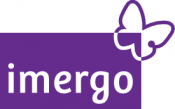Flying too high: Hubris, overconfidence and modern risk management
Risk Principle(s): Hubris and Overconfidence; Ignoring Expert Advice; Innovation Governance
Key Lessons: Ambition must be balanced with prudence. Overconfidence, ignoring limits, and disregarding expert warnings can lead to catastrophe. Innovation without risk oversight is dangerous.

In the history of human storytelling, ancient myths offer profound insights into the timeless relationship and tension between ambition and consequence. While often dismissed as mere tales from antiquity, these narratives are rich with metaphorical depth, serving as powerful guides for navigating the complex terrain of modern risk management. They provide a unique lens through which to examine organisational vulnerabilities, strategic missteps and the critical importance of a balanced approach to growth.
At Imergo, we believe in the power of storytelling to embed risk literacy and foster cultures that are not only ambitious and innovative but also acutely aware of their limitations and the inherent dangers of overreach. Let’s delve into a legendary Greek myth that offers a stark warning about the perils of unchecked ambition and the fatal flaw of hubris.
The Myth of Icarus: The Fatal Flaw of Overconfidence
The tragic myth of Icarus is a powerful and familiar one, resonating through centuries as a cautionary tale. Imprisoned on the island of Crete with his father, Daedalus, the renowned master craftsman and inventor, they devised an ingenious plan to escape by crafting elaborate wings of feathers and wax. As they prepared for their perilous flight, Daedalus, seasoned by experience and wisdom, delivered a solemn warning to his son: “Fly neither too high, lest the sun melt the wax, nor too low, lest the sea damp your feathers.” Despite his father’s sagacious counsel, young Icarus, overwhelmed by the exhilaration of freedom and the sheer thrill of flight, disregarded the vital instruction. Carried away by his own daring, he ascended too close to the scorching sun. The wax holding his meticulously constructed wings together melted, his feathers disintegrated, and he plunged inevitably into the sea below, perishing from his hubris.
The Risk Lesson: Navigating ambition with a respect for limits
The myth of Icarus serves as a timeless allegory for the peril of hubris, overconfidence, and the critical importance of understanding and respecting limits. For leaders and organisations, this translates to several vital lessons in modern risk management:
- The Danger of hubris and overconfidence: Icarus’s fatal error was not the act of flying itself, which was a marvel of innovation, but his arrogance in believing he could defy natural laws and his father’s explicit limits. In the corporate world, this manifests as overconfidence in market dominance, systematically underestimating emerging competitors, ignoring economic headwinds, or presuming that past successes guarantee future triumph indefinitely. Such hubris often leads to reckless decision-making, an unwillingness to acknowledge flaws or adapt to changing landscapes, and ultimately, a precipitous fall from grace, impacting reputation, market share, and long-term viability.
- Understanding and respecting limits: Daedalus’s warning about flying neither too high nor too low speaks to the vital need for organisations to profoundly understand their operational boundaries, financial constraints, regulatory limits, and ethical lines. Pushing beyond these boundaries without proper, rigorous risk assessment – whether it’s overextending financial resources, expanding into unknown geographical or technological territories without sufficient due diligence, engaging in ethically dubious practices to gain a competitive edge, or failing to adhere to regulatory requirements – can lead to catastrophic failure. Recognising and respecting these limits is a cornerstone of sustainable growth.
- Ignoring expert advice and warnings: Icarus chose, tragically, to disregard his father’s wise and life-saving advice, swayed by his own youthful exuberance. In complex organisational environments, this mirrors the significant risk of leaders dismissing crucial counsel from seasoned experts, dedicated risk professionals, internal auditors, or even the often-muffled dissenting voices within their own teams. When early warning signs are ignored, critical feedback is dismissed as negativity, or data is selectively interpreted to support a pre-conceived notion, vulnerabilities multiply unchecked, leading to preventable crises.
- Balancing innovation with prudence: The wings themselves were a marvel of innovation, a testament to Daedalus’s ambition and ingenuity. The tragedy lies not in the innovation, but in its misuse and the lack of a balanced perspective. This highlights the delicate equilibrium organisations must strike: fostering innovation and ambition is absolutely crucial for growth, competitive advantage, and future relevance, but it must be tempered with prudent risk management, realistic assessments of capabilities, and a healthy respect for potential downsides and unintended consequences. Unchecked ambition, without a grounding in reality and a robust risk framework, can ironically be a company’s downfall, turning a bold vision into a catastrophic failure.
Beyond the Horizon: Navigating ambition with humility
The myth of Icarus is a stark and enduring reminder that even the most innovative and promising ventures carry inherent risks, and true success demands not just ambition, but also humility, keen self-awareness, and a disciplined approach to understanding and respecting limits. It compels us to:
- Challenge overconfidence: Actively seek out diverse, dissenting opinions and external validation to break free from internal echo chambers and confirmation bias.
- Define clear boundaries: Rigorously understand and transparently communicate the operational, financial, regulatory, and ethical limits within which the organisation must operate.
- Value expert counsel: Cultivate a culture where warnings and critical feedback are not only heard but respected, seriously considered, and acted upon, regardless of who delivers them.
- Integrate prudence into innovation: Ensure that every ambitious project and strategic initiative is underpinned by robust, continuous risk assessment, scenario planning, and vigilant monitoring.
By internalising the profound lessons of Icarus, leaders can guide their organisations can reach new heights, but with the wisdom to know their limits, ensuring that their ambition is sustainable and does not end in a fatal fall. Contact us here to find out how we can help.
